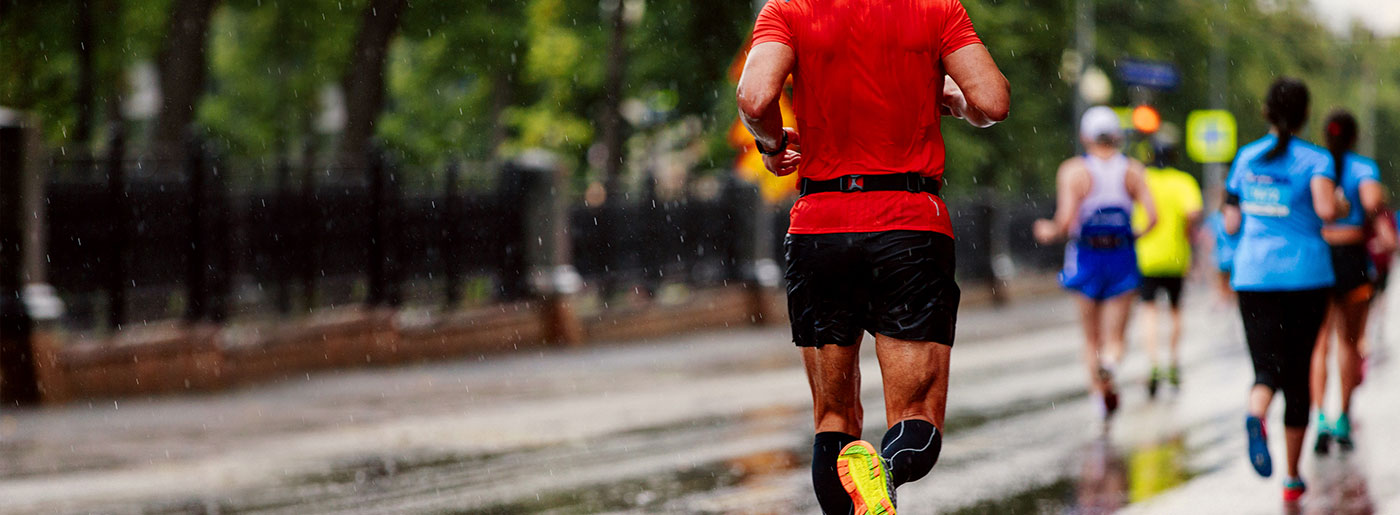So, here we are – just a month away from marathon day. This is the final week or so of getting the bigger miles in the bank before you look ahead and put the finishing touches on your training with a good marathon taper.
There comes a point where less is more and you don’t have time to get any fitter. You do have time, though, to freshen up and be sure you arrive at the start line feeling healthy, positive and full of self-belief.
Don’t let the gremlin create doubts or talk to you in these final key weeks. These tips will help you be ready and organized for the big day:
Reach your peak
3-4 weeks out will see you hit your final key long run. We always recommend looking to add some of your planned marathon pace into that run and don’t get too stressed about miles, work on time.
Try this:
3 hours – 3 hours 30 minutes with the final 60-90 minutes at your planned race day pace and intensity would be a great final key run. If you have a half marathon race in these final 4 weeks we’d strongly recommend running this at your goal marathon pace with easy running before and after.
Cut it back
Doing too much and too hard too close to race day will likely leave you tired but with no additional fitness gains. The marathon taper is all about cutting back your training to feel fresh for the big day.
Try this:
Three weeks out from race day consider cutting your long run back to a maximum of 2.5 hours, two weeks out down to 2 hours with the final 30 minutes at race pace and a week out from race day a nice easy 75-minute relaxed run.
Feel the frequency
Your body likes routine and patterns of training, don’t cut your training back so much in the final three weeks that your feel rusty. Keep feeling like a runner!
Try this:
Keep the frequency of your training the same. If you normally run three, four or five times a week, keep running three, four or five times a week during the final 3-4 weeks. In the final two weeks, though, you can cut back the volume of each run by about 30 % and down to a few easy 30-40 minute runs in race week.
Get cross
Niggles and sickness can still strike during your taper and the desire to run through this can see many runners undo all their hard work.
Try this:
If you are sick or carrying a niggle take extra rest or consider cross training – aqua jogging, elliptical and static bike are all great options for replicating our running plan with less impact.
A matter of routine
Race day should be easy – you should have practiced your kit and race plan mentally and physically in training and know exactly what to do.
Try this:
Make sure you use your final long runs to practice your pre-race meal and breakfast, your gel and hydration strategy and ensure you have worn your race kit several times.
All in the mind
The gremlin will find you at some point in these final 3-4 weeks.
“Have you done enough training?”
“Should you squeeze in one more three-hour run?”
“Do I need to make up for that week I missed when I had a cold?”
These are common worries in the final weeks but eventually less becomes more. It’s time to let the body start to recover and build its strength for race day.
Try this:
Look back over your training diary and write down 8-10 positive statements about what you have achieved so far. It could be a great long run, a race PB, building consistent stretching and conditioning patterns. Reinforce the positives from what you have done, not the things you haven’t.
Book an MOT
If you were entering a car or bike race you’d definitely want to make sure everything was running smoothly and had a bit of love and attention before you hit the start line. Your body is no different.
Try this:
Book in for an MOT with a good local sports physio or consider getting a sports massage in the final two weeks. No closer than the Wednesday of race week though as sometimes these can leave you feeling a little sore!
Sharpen the knife
All the long miles in training can sometimes leave your legs feeling a bit slow and rusty. Getting some faster running in during the marathon taper can be a great option to get that ‘zip’ back into the legs.
Try this:
Eight or 15 days out from the marathon, look to run your local parkrun (www.parkrun.org), a 5km blast wearing your marathon kit will make marathon effort seem that bit easier but will also remind you of some of your race day logistics.
Getting all practical
Major marathons always involve some tricky logistics. Leave nothing to chance and make sure you get your planning done early – when are you going to the expo? Which train will you catch on race morning? Have you booked a meal for Saturday night?
Try this:
If you possibly can try to get to the expo earlier in the week when it is less busy. If you can’t make sure you keep time spent wandering, there to a minimum. The Friday and Saturday before the race is the time to spend as little time on your feet as possible.
Clear YOUR SCHEDULE
The marathon taper is all about doing less, not more. Just because you now have more time because of not training doesn’t mean it’s time for more gym or doing big DIY jobs at home.
Try this:
Be a bit selfish this week and ask for help with some of the jobs around the house. If you possibly can, take an extra day off work on the Friday before the race and use it to do… absolutely nothing!
Sleep yourself fit
Sleep is when your body releases all the growth hormone you need to adapt to all those hard miles. If you can possibly look to get an extra 15-30 minutes a night in these final 2-3 weeks it could make a massive difference to your final performance.
Try this:
Practice good sleep hygiene. Banish smart phones and tablets from the bedroom, find a good sleep routine and pattern where you aim to hit the sack at the same time most or all nights and avoid stimulants, such as caffeine and alcohol late at night. Aim to eat your main meal a little earlier and ideally two hours or more before you sleep.
If you liked this post, don’t forget to share so that others can find it, too.
Or give it a thumbs up!
I like this article
Please note that the information provided in the Polar Blog articles cannot replace individual advice from health professionals. Please consult your physician before starting a new fitness program.






